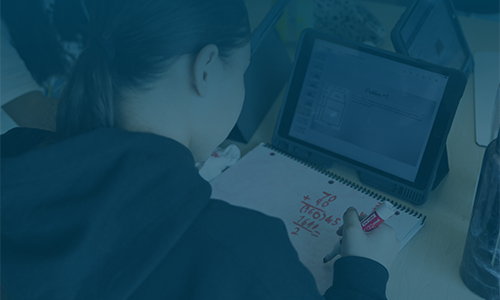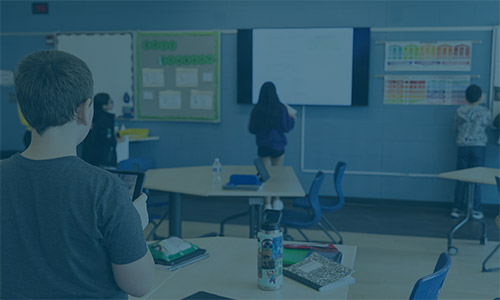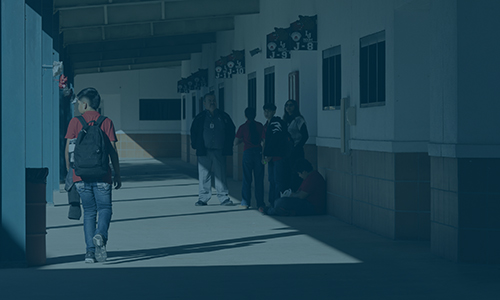Research brief
High dosage tutoring for academically at-risk students
January 2024
By: Miles Davison, Sofia Postell, Jazmin Isaacs, Ayesha K. Hashim

Description
The share of at-risk students has increased post pandemic requiring a response that matches the magnitude of the impact. High dosage tutoring has been one strategy to address the needs. If implemented effectively and at the proper scale, accelerated academic growth is possible.
This brief reviews the collection of research on high dosage tutoring, its benefits and the factors that must be considered and included to implement high dosage tutoring effectively. Among those are frequency and scheduling, group size, qualified personnel, measurement of outcomes, curriculum, tutor-to-student relationships, and new components like removing barriers to access.
See MoreTopics: COVID-19 & schools, Equity, Growth, Informing instruction
Related Topics


From loss to recovery: Diverging paths and uneven gains across schools
This research brief examines two components of school recovery post-COVID pandemic to better understand recovery patterns. These include initial declines in average achievement and post-pandemic gains in average achievement across schools. By understanding these different recovery patterns, the brief offers insights to policy makers and leaders where to invest for long-term improvement and targeting support where it is needed most.
By: Emily Morton, Megan Kuhfeld, Ayesha K. Hashim, Scott J. Peters
Topics: COVID-19 & schools, Growth, High-growth schools & practices, Seasonal learning patterns & summer loss


Tech Appendix for “From loss to recovery: Diverging paths and uneven gains across schools”
This is the technical appendix to the research brief titled, “From loss to recovery: Diverging paths and uneven gains across schools,” which examines two components of school recovery post-COVID pandemic to better understand recovery patterns.
By: Emily Morton, Megan Kuhfeld, Ayesha K. Hashim, Scott J. Peters
Topics: COVID-19 & schools, Growth, High-growth schools & practices, Seasonal learning patterns & summer loss


Lessons in resilience: A playbook for recovery from natural disasters
This research brief is a follow-up report to NWEA’s brief examining the impact of extreme weather disruptions to teaching and learning. This report offers practical strategies and recommendations to school districts for preparing for extreme weather events to recover faster and lessen the impact on students and teachers.
By: Megan Kuhfeld, James Soland
Topics: COVID-19 & schools, Growth, Seasonal learning patterns & summer loss


Post-Pandemic School Closure Trends: Schools Serving Black Students Disproportionately Closed
This NWEA white paper explores the impacts of permanent school closures on communities. Findings suggest that despite challenges facing districts and the increased rhetoric around closures, most districts have continued to keep schools open; however, when schools were permanently closed, all communities are not affected equally: high poverty and high percentage Black students are more likely to close.
By: Jazmin Isaacs, Megan Kuhfeld, Sofia Postell, Ayesha K. Hashim
Topics: COVID-19 & schools, Growth


School’s in for Summer: A Scalable and Effective Post-Pandemic Academic Intervention
New research report looks at the effects of post-pandemic summer school on student achievement and district recovery, how program design and implementation aligned with recommended best practices, and how the scale and impact of summer school compared to other interventions, like tutoring.
By: Emily Morton, Dan Goldhaber, Andrew McEachin, Thomas J. Kane
Topics: COVID-19 & schools, Growth, Seasonal learning patterns & summer loss


Unequal Access to 8th-Grade Algebra: How School Offerings and Placement Practices Limit Opportunity
This NWEA research brief examines how access to early Algebra – a key gateway to advanced high school math, STEM majors, and higher lifetime earnings – remains highly inequitable across the United States. Using NWEA data from 162,000 eighth-grade students across 22 states, the study looks at both whether schools offer Algebra by 8th grade and how students are placed when it is offered. The findings point to significant gaps tied to school poverty levels, geography, and race/ethnicity.
By: Daniel Long, Megan Kuhfeld, Scott J. Peters
Topics: College & career readiness, Equity, Math & STEM


This is the technical appendix to the “Unequal Access to 8th-Grade Algebra: How School Offerings and Placement Practices Limit Opportunity” research brief, which examines how access to early Algebra remains highly inequitable across the United States.
By: Daniel Long, Megan Kuhfeld, Scott J. Peters
Products: MAP Growth
Topics: College & career readiness, Equity, Math & STEM


